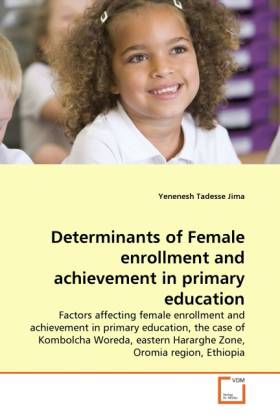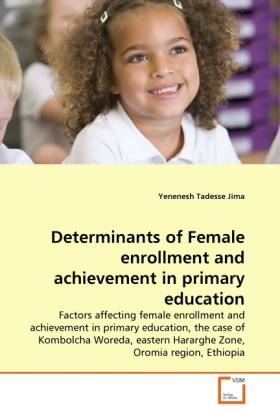
- Afhalen na 1 uur in een winkel met voorraad
- Gratis thuislevering in België vanaf € 30
- Ruim aanbod met 7 miljoen producten
- Afhalen na 1 uur in een winkel met voorraad
- Gratis thuislevering in België vanaf € 30
- Ruim aanbod met 7 miljoen producten
Zoeken
Determinants of Female enrollment and achievement in primary education
Factors affecting female enrollment and achievement in primary education, the case of Kombolcha Woreda, eastern Hararghe Zone, Oromia region, Ethiopia
Yenenesh Tadesse Jima
Paperback | Engels
€ 85,45
+ 170 punten
Omschrijving
Even though Ethiopia is amongst the poorest and educationally most disadvantaged countries in the world as a result of change in the government in 1991, a new education and training sector was declared in April 1994. Because of this, the number of primary schools has grown over the last five years and enrollment of students has increased. Although this seems a remarkable growth, female students in rural Ethiopia invariably encounter different problems in attending school. Therefore, the study was focused on the issue related to the problems of female in primary education and investigates the factors that affect their education in the study area. Hence, the results of this study provide clearly the real situation of females' education and the problem that hinder them from access to education. As a result, this study contribute significantly for further study in the future as well as providing recommendation about expanding and retaining female students in primary school for policy makers and planners that contribute for designing relevant strategies for narrowing the gender gap in education.
Specificaties
Betrokkenen
- Auteur(s):
- Uitgeverij:
Inhoud
- Aantal bladzijden:
- 140
- Taal:
- Engels
Eigenschappen
- Productcode (EAN):
- 9783639311341
- Verschijningsdatum:
- 9/06/2011
- Uitvoering:
- Paperback
- Afmetingen:
- 152 mm x 229 mm
- Gewicht:
- 213 g

Alleen bij Standaard Boekhandel
+ 170 punten op je klantenkaart van Standaard Boekhandel
Beoordelingen
We publiceren alleen reviews die voldoen aan de voorwaarden voor reviews. Bekijk onze voorwaarden voor reviews.











